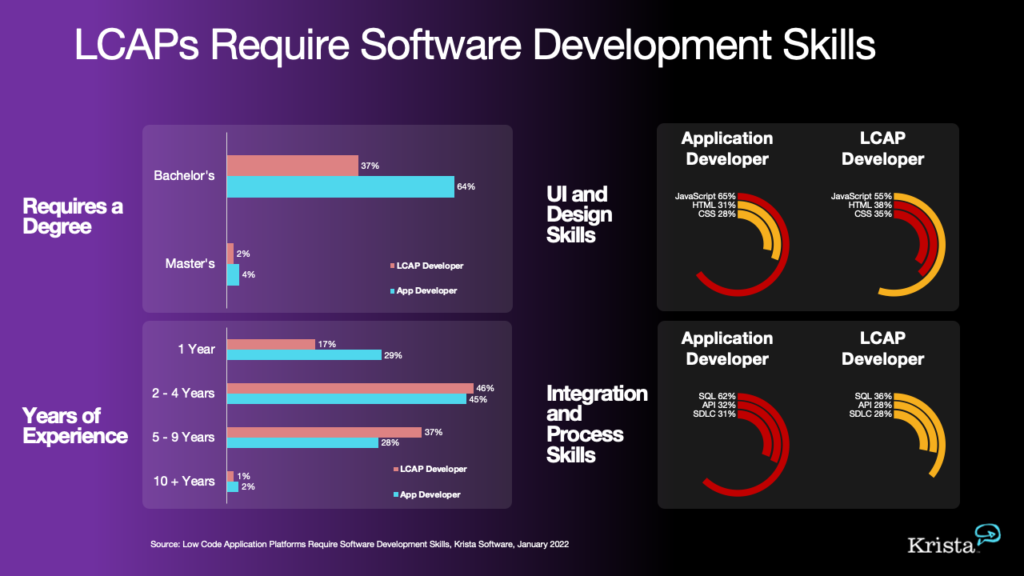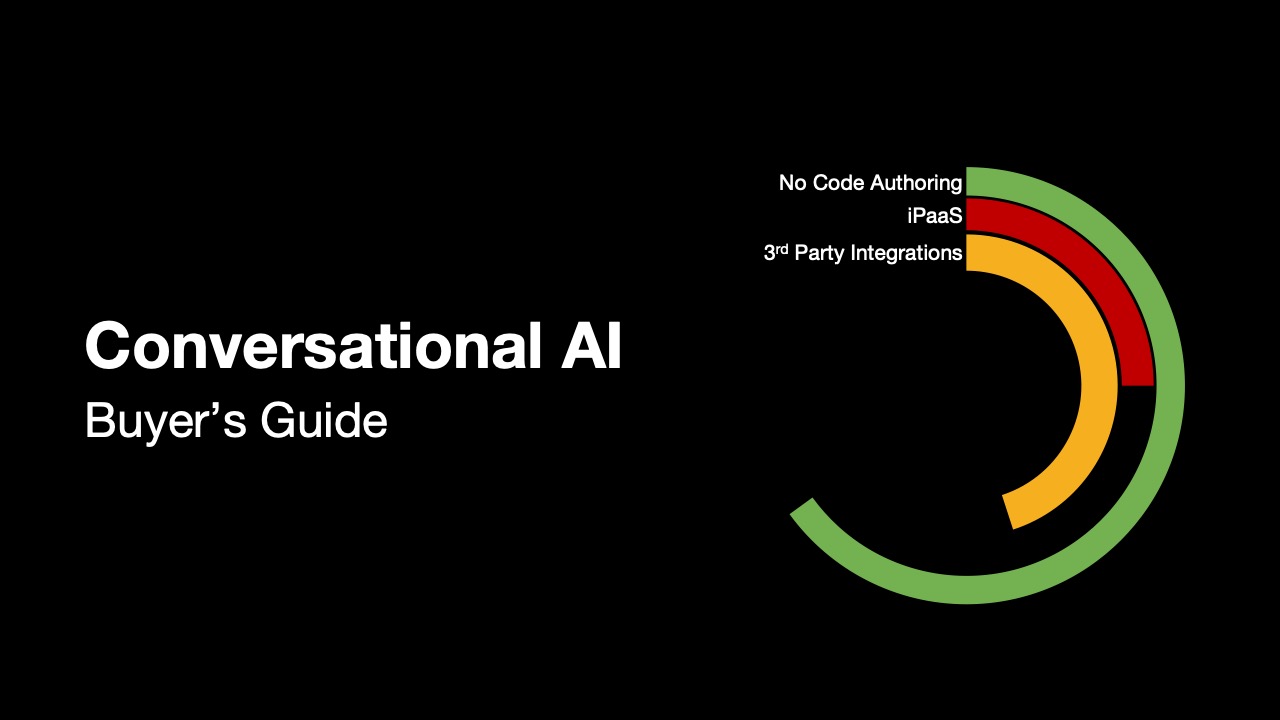A review of LinkedIn job postings for application developers found low code application platforms require just as many software development skills as custom application development.
Why it matters: IT leaders seeking to democratize technology with low code citizen developer projects may not realize low code platforms still require application development skills.
The big picture: Regardless of required development effort, building more apps for workers to contend with increases complexity and builds technical debt.
- Compared 400 application development and low code job opportunities on LinkedIn
- More Low Code Application Platform jobs require UI and design skills
- Nearly a third of low code jobs require SDLC knowledge or Agile experience

One of our customers asked John how much easier low code application platforms, LCAP, are to use when building new apps. John informed them that low code platforms require skilled developers even though they market themselves as easier to develop apps. They questioned his quick response and assumed these platforms simplified app development. So, to settle the debate, I scraped job postings from LinkedIn to compare job openings for custom application development and those requiring low code platform experience.
I reviewed 400 different job postings on LinkedIn for application developers [ link to data ]. Two hundred of the job posts specifically asked for low code application developers with experience in Appian, OutSystems, Microsoft, Mendix, ServiceNow, Salesforce, or Oracle. The remaining 200 jobs sought application developers and didn’t specify a platform. Here is what I found.
First, I looked for required education credentials and years of experience. Sixty-four percent of the application development jobs required a bachelor’s degree as opposed to only 37 percent of low code jobs requiring a degree.
I then looked at the required years of experience. It was interesting that jobs seeking low code application developers asked for more experience on average than those not developing in a specific platform.
Many of the job postings listed specific UI and design skills. The low code job postings actually state more HTML, CSS, and JavaScript skills requirements. Thirty-one percent of application development jobs in our sample require HTML, and 38 percent of the low code jobs require these skills. More than a third of the LCAP job postings require CSS experience. Most of the jobs in both categories require JavaScript. With so much emphasis on design and usability, it’s clear companies still need too much human interaction to automate processes.
After reviewing UI requirements, I noticed many of the jobs require process and integration skills. Many of the jobs in our sample required API knowledge. Thirty-two percent of application developer jobs require API experience and 28 percent of low code jobs require it. About a third of jobs in both sets require software development lifecycle or agile process knowledge. Process knowledge is essential because IT leaders understand these apps take time to build, and therefore, they need experience in agile methodologies.
After reviewing 400 application development jobs and those requiring specific experience with low code platform development platforms, I found low code platforms require just as much or more skills than custom application development.
Are low code platforms democratizing technology if they require so many technical skills?
Low Code isn’t No Code
To truly democratize technology is why we created Krista. Krista is the technology that understands people. Krista is a nothing-like-code experience enabling process owners to build automations for complete business processes across multiple people and apps instead of small tasks. Building intelligent automation in Krista is intuitive and doesn’t require technical skills. Therefore, process owners can edit in minutes, not months, to avoid waiting for expensive IT resources. Krista reduces complexity for your people since she does most of the work and involves people as needed. Most importantly, building automations with Krista structures data and provides a straightforward way to introduce machine learning into your company.
 HFS Research Names Krista a Hot Vendor
Prev post
HFS Research Names Krista a Hot Vendor
Prev post 



